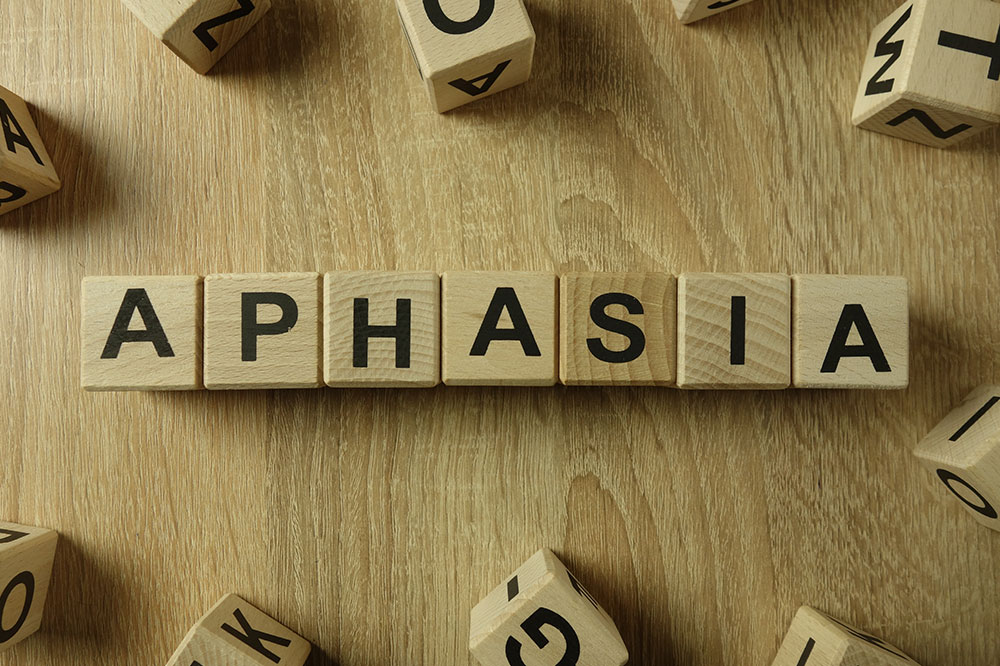
Aphasia – Symptoms, types, causes, and therapies
Aphasia is a condition that affects the manner in which a person communicates. It can be observed in their speech and how they write and comprehend written and spoken words. The condition can be caused by a stroke or a severe head injury. The severity of aphasia in a person relies on various factors, including the severity of brain damage and the cause. If the underlying disease of aphasia is treatable, the condition is curable.
Symptoms of aphasia
While aphasia is a sign of another underlying cause, it has several symptoms. Here are some of the typical signs observed:
One talks in incomplete or short sentences
What they say is hard to understand
One swaps words and sounds
One uses incomprehensive words
They struggle to find the right words
There is trouble understanding and keeping up with conversations
Individuals are unable to understand a text
One writes a set of words that don’t function as a rational sentence
Types of aphasia
There are various types or variations of aphasia. Let’s look at some of them.
Broca’s aphasia
Broca’s aphasia goes by names like “expressive aphasia” and “non-fluent aphasia.” People with this type struggle to say multiple sounds simultaneously and form certain words. It affects the part of the brain that is responsible for movement.
Transcortical motor aphasia
While this is similar to Broca’s aphasia, it is milder. People with this condition can easily repeat sentences and phrases when you converse with them.
Wernicke’s aphasia
Wernicke’s aphasia is also called “fluent aphasia” and “receptive aphasia.” People affected by this will have no overall trouble speaking, but the words they say may not make sense or hint at confusion. They may use incorrect words or even make up some. This condition affects the parts of the brain that control sight, causing vision issues sometimes.
Transcortical sensory aphasia
Where people with Wernicke’s aphasia can’t easily repeat phrases, people with this form of the condition can, as it is less severe. It is common among people with degenerative brain diseases like Alzheimer’s.
Global aphasia
Since it is the most severe form of aphasia, it could include mutism. Some may repeat the same sentences. People with global aphasia may have trouble understanding complex phrases. Major strokes and severe head injuries lead to this type of the condition.
Conduction aphasia
People with this form of the condition can understand a language but can’t speak it fluently. They will find things that are said difficult to pronounce.
Anomic aphasia
People with anomic aphasia have trouble finding nouns and verbs. Their vocabulary often revolves around vague words to convey the meaning to the listener.
Causes of aphasia
Trauma to any language area of the brain may result in aphasia. Strokes are the most common cause of the condition. A blood clot, disrupted, or damaged blood vessel affecting the bloodstream to the brain may also lead to aphasia. Without adequate blood flow and oxygen supply to the brain, neurons die.
Other causes cover head injuries, infections, tumors, gunshot injuries, infections, Alzeihmer’s, developmental and cognitive disorders, epilepsy, genetic conditions, inflammation, chemotherapy, radiation therapy, exposure to toxins and poisons, transient ischemic attacks (TIA), and progressive neurological diseases.
Additionally, the causes of aphasia may include the following conditions:
Aneurysms
Aneurysms occur due to weakened parts of an artery wall that eventually expand or balloon up. It can be a genetic disorder or caused by an injury.
Brain surgery
Invasive brain surgeries to treat tumors, epilepsy, or ruptured blood vessels. Incision and craniotomy may affect other parts of the brain, causing aphasia.
Cerebral hypoxia
Cerebral hypoxia accounts for a severe lack of oxygen, causing a health emergency. It is the leading cause of heart attacks and strokes.
Dementia
Dementia is a term that covers cognitive disorders affecting reasoning, mood, thinking, personality, memory, and behavior. Fifty percent of elderly over the age of 85 have dementia.
Treatment of aphasia
Language difficulties due to mild brain damage are curable without treatment. However, specialists advise opting for speech and language therapy to enhance communication. Prescription treatments may recover stable blood flow and the ability to replace exhausted chemicals in the brain.
Therapy
Experts recommend therapy in the early stages of recovery. Support groups often form to generate a safe space for people with aphasia. Participants try speaking, resolving confusion, breaking down the sentences into rational parts, and improving over time. Language and speech therapy may also include computers to relearn verbs and word sounds.
Professional care
Care from a healthcare professional relies on the cause of the condition. Acute stroke treatment for a person with aphasia involves intravenous tPA and intra-arterial interventional treatments.
Final thoughts
Aphasia caused by a traumatic head injury or a stroke is typically noticed in the emergency room. A neurologist will study the case and recommend the patient to a speech therapist for prompt rehabilitation. If the situation is abrupt and considered an emergency, inform your physicians of prior prescription treatments and supplements.




